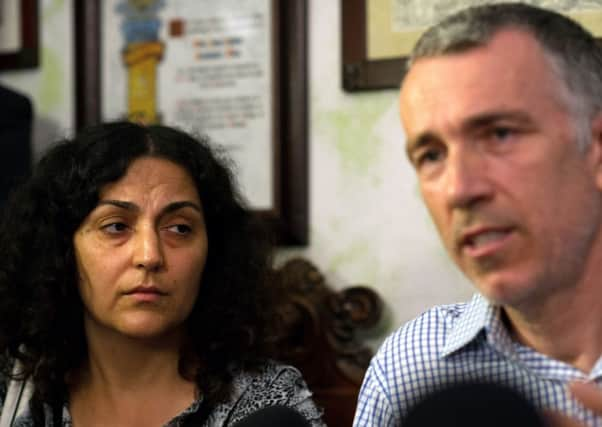Lyndsay Buckland: Fight against cancer not over


The situation has raised many areas of concern, not least the appalling manhunt across Europe which led to the five-year-old’s parents being jailed in Spain and separated from their sick child for several days.
Their crime, it appears, was not accepting the medical advice they had been given back home.
Advertisement
Hide AdAdvertisement
Hide AdThe King family are hoping to take Ashya to Prague for a treatment known as proton beam therapy. Unlike traditional radiotherapy, which can also damage healthy tissue, the protons – sub-atomic particles – target only the cancerous cells.
It is easy to see why this is considered a major benefit, especially in young patients whose brains are still developing.
Small numbers of patients in the UK are referred to the US for proton therapy each year and while there is a £250 million plan for two centres to be built in England (in London and Manchester) these will not be ready until 2018. This will be too late to help Ashya, and many others fighting cancer now and in the years ahead.
It is unclear why Ashya did not qualify for NHS-funded proton therapy in the US, leading to his parents taking the drastic decision to remove him from hospital and head abroad. It is true that there is still uncertainty about the benefits of the treatment; it may do less damage than conventional radiotherapy, but is it as successful at killing the cancer?
But the case does highlight the need to continue the drive to improve treatment of childhood cancers, whether that is through technologies such as proton therapy, improving the effectiveness of chemotherapy or enhancing surgical techniques.
Figures recently showed that the rate of death from childhood cancers in Scotland has dropped by a third in the last decade.
But the fact that children are still dying from cancer – around 20 a year in Scotland – means we cannot consider the job done. And for those who survive, there is certainly a lot more that could be done to improve their quality of life so the shadow of cancer does not hang so heavily over them.
As for Ashya, let’s hope he can now get whatever treatment he needs to give him the best chance of extending his life, and that his family are never again separated at this awful time.
With better treatments at home, maybe other families could be spared such terrible choices when faced with what is already a devastating diagnosis.